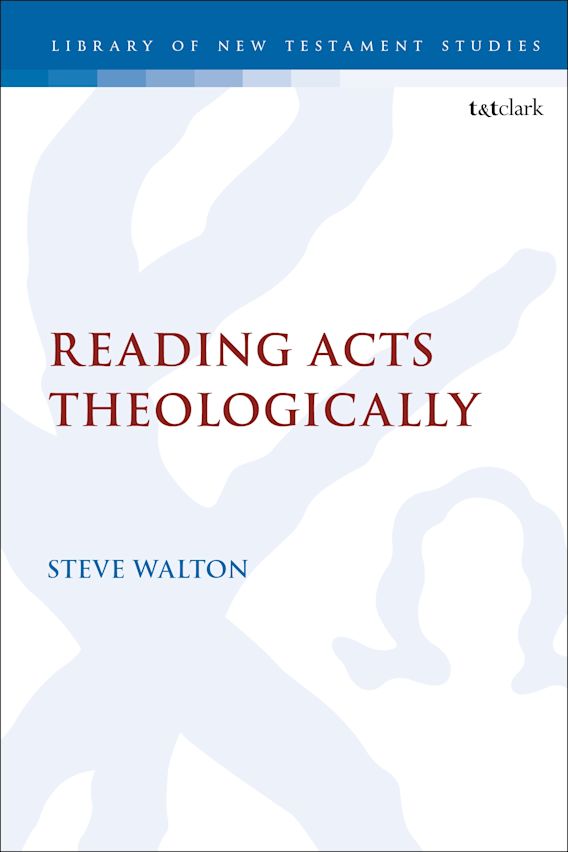Reading Acts Theologically—in paperback!

I’m delighted to say that my book Reading Acts Theologically, published in July 2022 by T. & T. Clark/Bloomsbury, will be available in paperback on 24 January 2024, which makes it much more affordable. The official price is £28.99, but you can pre-prder it from the Bloomsbury website here for £26.09. For more about the book, see my post about the hardback here.
I warmly recommend the Library for New Testament Studies series, to which my book belongs, not least because of their policy of publishing in paperback 18 months after the hardback—this means the libraries will get the hardback, and then normal human beings can afford the paperback. The series editor Chris Keith and the Bloomsbury editorial staff are first class.


Dear Professor Walton, greetings from Vancouver Island, BC! In my early retirement, I had the privilege of serving at Trinity from 2012 to 2015 as a pastoral tutor and chaplain – a great place.
I am writing about your article on Acts for the current Scripture Union Encounter notes and would like to offer some thoughts on the Ethiopian Eunuch possibly being part of the Ethiopian Jewish community. I have reflected on this after teaching at St. Frumentius (Anglican) College in Ethiopia and learning about their traditions of Jewish heritage. I realize “Ethiopia” in Acts might be Sudan or another area of Africa, but the story of his conversion fits right in after the Samaritans and before Cornelius as a spreading of the Gospel from Jerusalem and full Jews to Samaria (“half-Jews”) before reaching the fully Gentile people in chapter 10.
I realize that there are questions about the origin of the Ethiopian Jews and when they actually arose but it is interesting that Luke sets this story in the oder he does
I would welcome your thoughts.
Sincerely in Christ,
Brett Cane (retired Anglican priest)
Thanks Brett. Apologies for slow response. Thanks for your thoughts, which are interesting. I am inclined to think the eunuch is a sympathiser with Judaism, another ‘half way’ to Judaism, rather like the godfearers elsewhere in Acts, rather than being regarded as a Jew. His emasculation would mean he would be unable to participate fully in temple worship, and that inclines me to think the purpose future participle ‘in order to worship’ (v 27) implies that although he wanted to do so, he was not able. Brittany Wilson’s work on his (non-)masculinity is interesting in this regard—you might enjoy reading her book Unmanly Men (Oxford University Press), which has a good chapter on the eunuch. You’ll see my understanding in full in the first volume of the commentary on Acts 1–9 towards the end of next year, DV.